Confession Through Projection
Kari Lake election suit, Donald Trump indicted, RESTRICT Act, Uganda LGBTQ ban, ActBlue, the Vulkan Files, and more
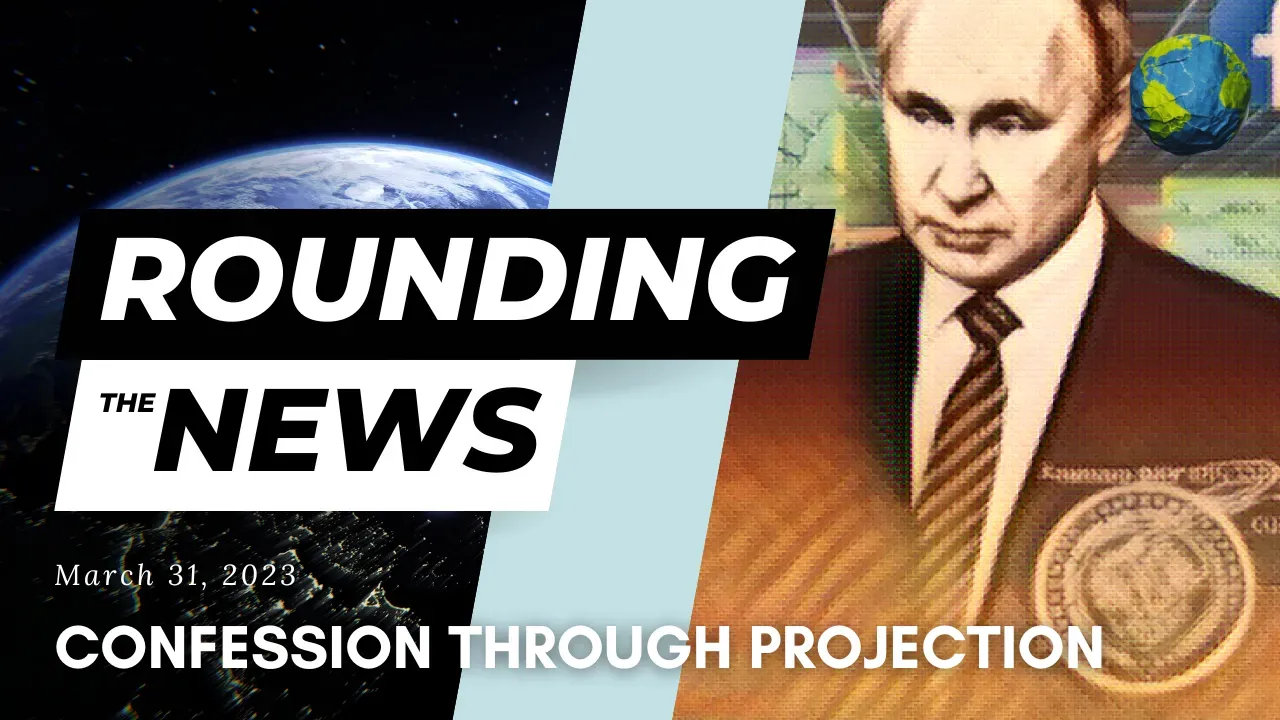
Originally published on Substack for Rounding the Earth.
Rounding the Earth
The following article serves as the show notes for the video presentation of the same name released through the Rounding the News series, presented by Rounding the Earth. It is provided to allow RTE listeners to verify my sources and conduct their own due diligence, and is intended as a supplement to the video. As such, I highly encourage readers of this Substack to watch the full episode and support Rounding the Earth, whose founder Mathew Crawford has provided me the platform and resources to conduct this important work. Thank you, Rounding the Earth!
Open letter calls out UBC’s unethical COVID-19 policies
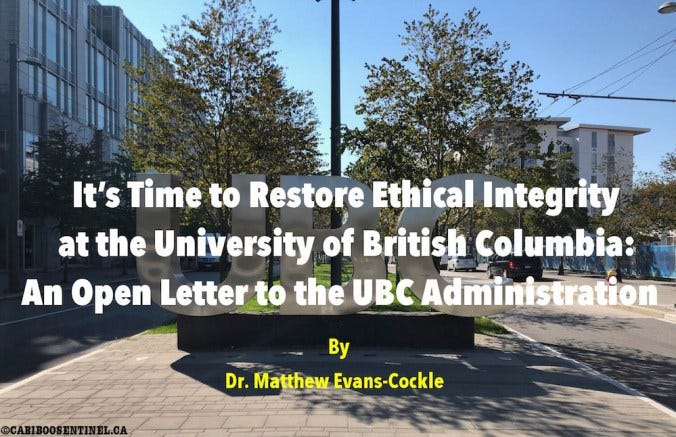
Dr. Matthew Evans-Cockle, PhD has stepped into the spotlight with an open letter to the University of British Columbia (UBC), published in the Cariboo Journal.
After three long years, I am tired of being continuously ashamed of UBC. I want to see representatives of the UBC community begin taking the steps necessary to restore UBC’s ethical integrity. I’m calling upon the UBC Board of Governors, the UBC Senate, the UBC Heads of Departments, the UBC Office of the Provost and Vice-President Academic, and the UBC Office of the President—I’m calling upon the human beings in these offices, the human beings in these roles, to take responsibility and begin doing the right thing. I’m calling upon you all to begin making amends for the harm UBC’s COVID-19 policies have done to UBC as a community as well as for the harm they have done to UBC’s reputation as an institution of higher learning.
We can all do better.
Dr. Cockle has also launched a new Rumble channel called CurmudgeonsCorner, where he has published three mini-lectures:
- March 17, 2023: Ethical Integrity at the University of British Columbia
- March 18, 2023: Punished for Doing the Right Thing: The Battle for Ethical Medicine in Ontario
- March 25, 2023: Public Health Marketing Slogans: Lessons Learned
Long-time members of the Rounding the Earth community will know Dr. Cockle from his participation in our October 11, 2022 round table discussion alongside our friend Tessa Lena, titled The Red Herring.
Kari Lake election challenge affirmed by Arizona Supreme Court

Former Arizona gubernatorial candidate Kari Lake has had her election integrity concerns affirmed by the judiciary, paving the way for a more in-depth examination of whether the state’s 2022 mid-term elections were conducted according to the law.
Lake officially lost last November’s race to her opponent, Katie Hobbs, amid “a series of technical glitches” impacting voting machines in key precincts across Arizona, disproportionately affecting Republican voters who turned out to vote on election day.
This was not, however, the full extent of the problems plaguing the state's voting system, leading to the filing of a formal challenge of the election results in December 2020. Court documents list a number of specific concerns, including failure to maintain proper chain of custody for thousands of mail-in ballots; collusion with the U.S. Department of Homeland Security (DHS), Facebook and Twitter to control public discourse in the state using an "Election Disinformation Reporting Portal"; and failure to abide by the state's signature match verification laws.
After her initial suit and appeal were dismissed, she petitioned the Arizona Supreme Court to review the issue. The court ordered the issue of signature match verification to be revisited.
Lawsuits against Epstein-tied banks move forward
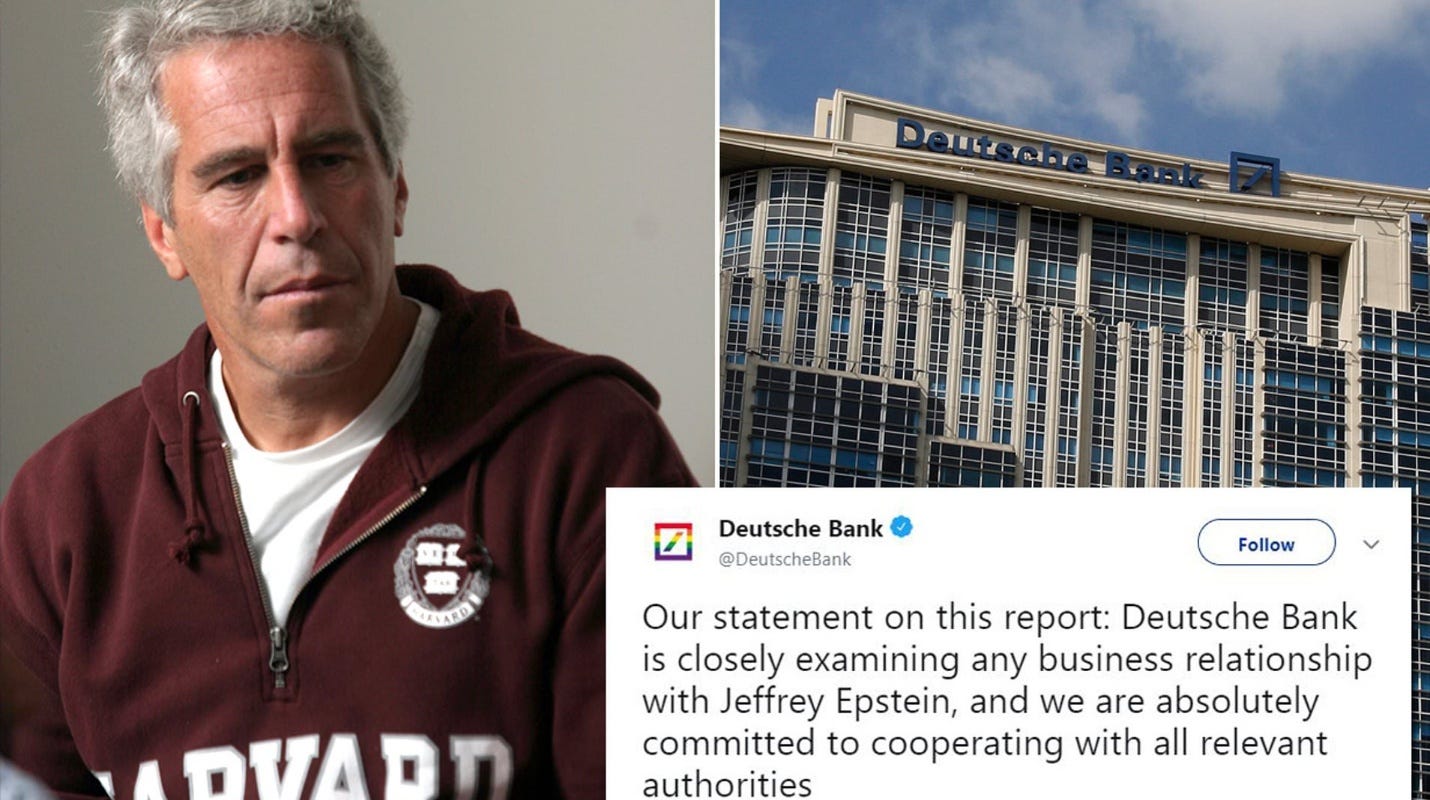
Similarly, a judge in New York gave the thumbs up for two lawsuits against Deutsche Bank and JPMorgan Chase to move ahead into discovery. The suits allege that both banks knowingly profited from their enabling of the child sex trafficking network run by their client, Jeffrey Epstein.
While Epstein died in prison in 2019 and his parter Ghislaine Maxwell is in jail, the full extent of the pair’s operations have not yet been fleshed out on the record. In particular, the list of clients benefiting from Epstein and Maxwell’s highly illicit and horrifying operation has remained elusive and — oddly — of little interest to prosecutors and institutional media.
Documents produced by the two banks during discovery are expected to provide additional details about what they and their executives knew about Epstein’s activities, including possibly their own incriminating actions.
Donald Trump indicted in New York

After nearly two weeks of back-and-forth and uncertainty, former President Donald Trump has been indicted by Manhattan District Attorney Alan Bragg.
As pointed out by the New York Times’ Charlie Savage, the basis of the charges against Trump have not yet been made public.
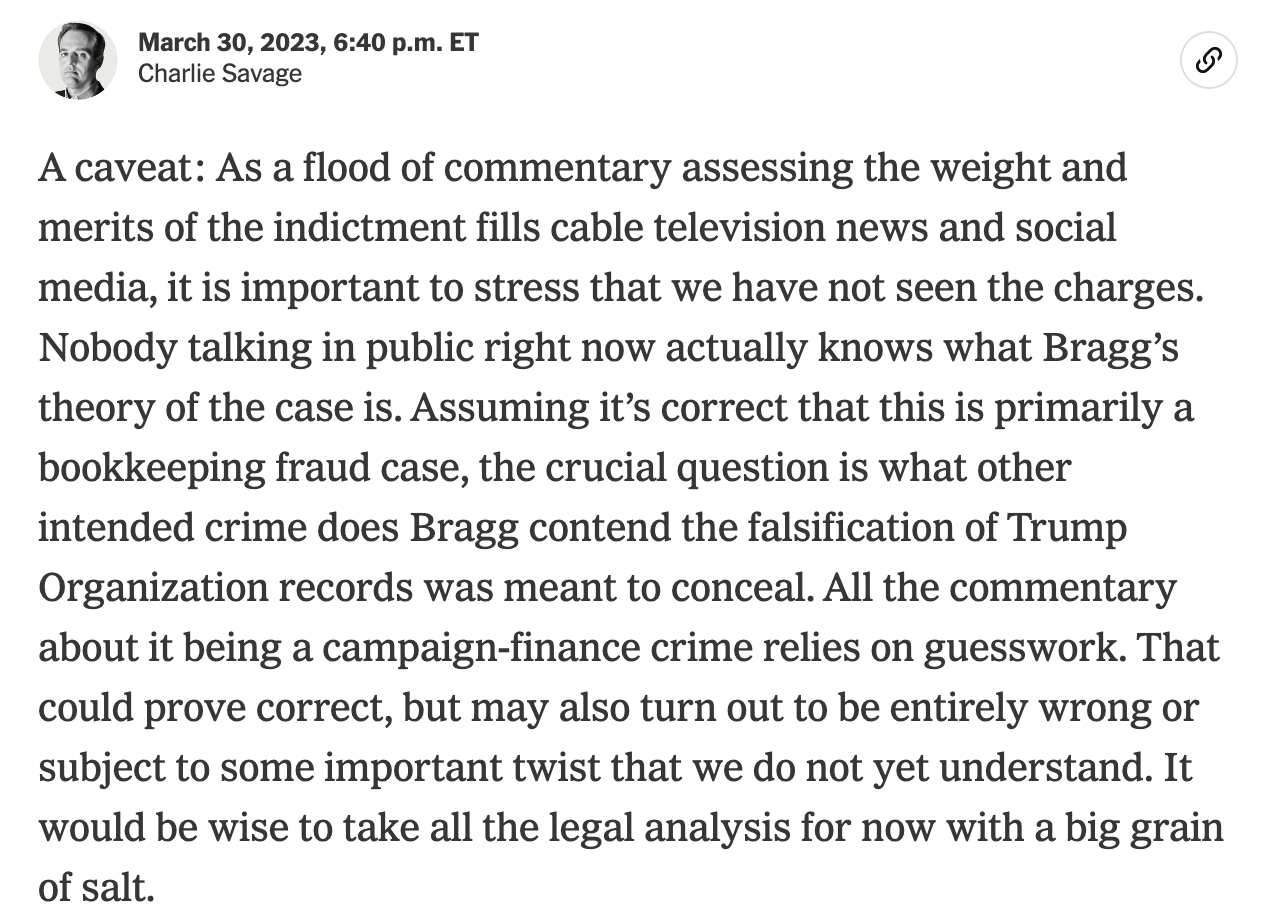
This is the first time in the history of the United States that a former President has been criminally indicted, and the first time the leading opposition candidate for the Presidency has faced arrest.
RESTRICT Act is a red herring for mass surveillance and censorship
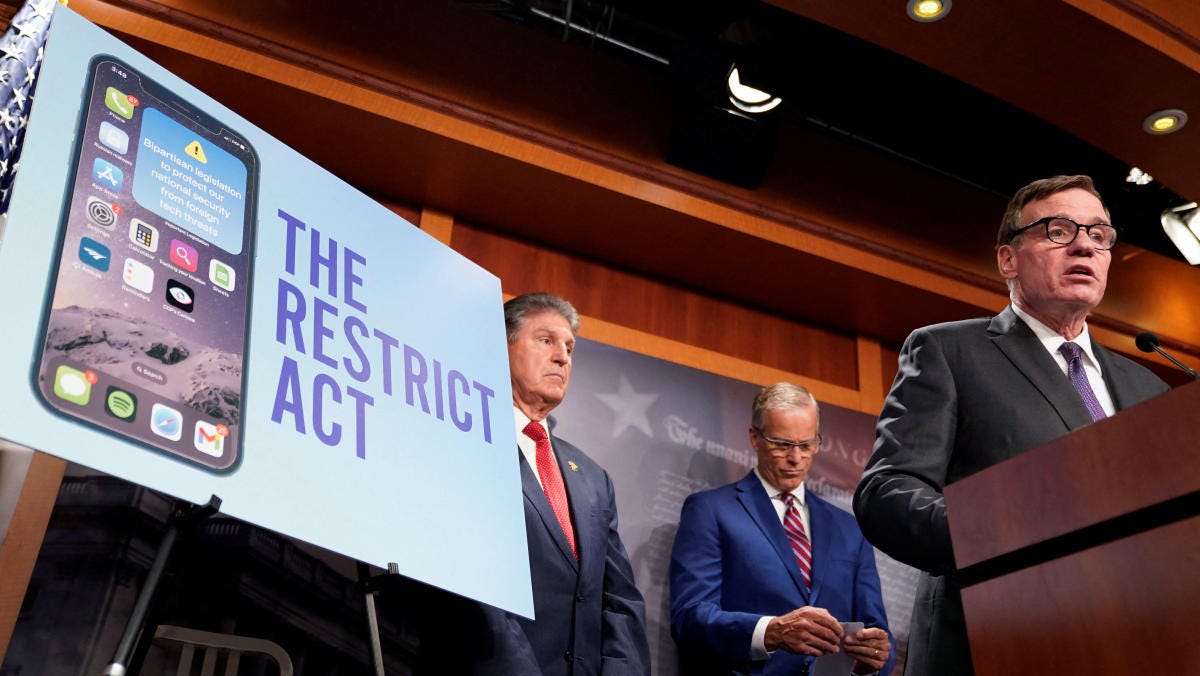
Amid a flurry of concern over the Chinese Government’s use of social media application TikTok for espionage and social manipulation of American citizens, the U.S. Congress is debating a bill called the RESTRICT Act.
Further reading:
Also of note…
- ActBlue may be laundering political donations
- Toxic waste sent around the country to inappropriate facilities
- Uganda bans being LGBTQ
The Vulkan Files: Confession through Projection
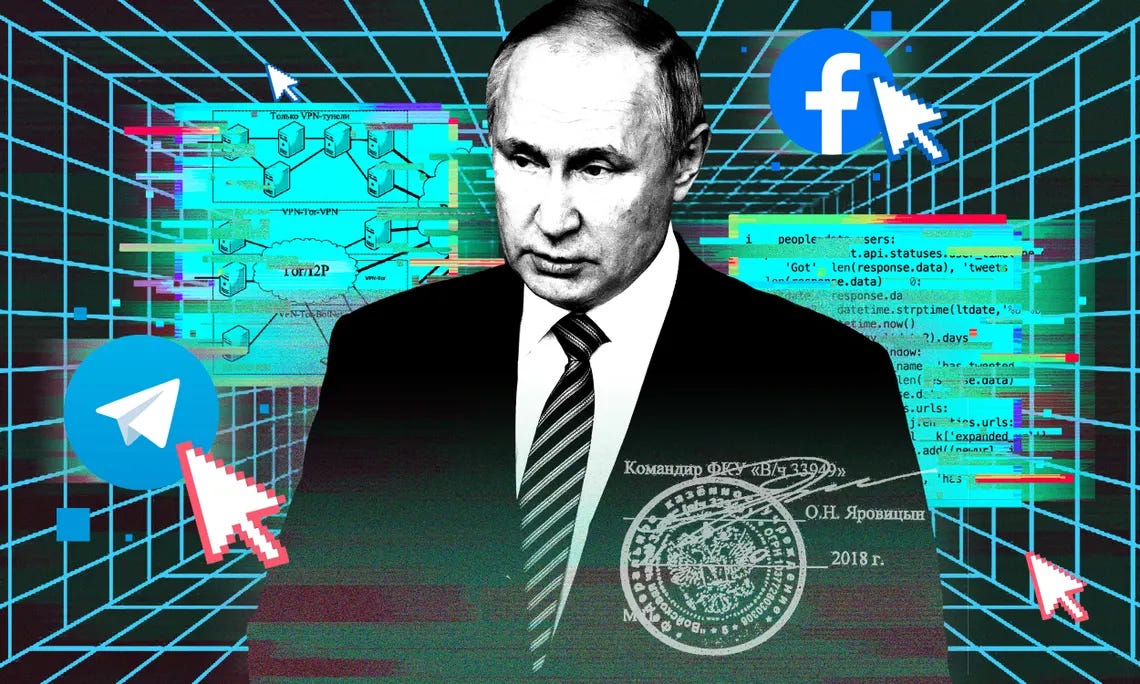
Well, well, well… it appears we have another addition to our growing “Insert-noun-here Files” collection!
Yesterday, British newspaper The Guardian published an article detailing what they called the “Vulkan Files,” describing the cyber warfare and disinformation tools and techniques developed by a Russian company called NTC Vulkan. The story is allegedly based on a leak of thousands of internal documents provided by an anonymous whistleblower.
Despite the implication written into the headline, ‘Vulkan files’ leak reveals Putin’s global and domestic cyberwarfare tactics, the article does not actually assert that these tools are being used by the Russian government, or that there’s any reason in particular to believe they were even developed with guidance from President Vladimir Putin or his office. In short, while the article seems to contain a compelling story, there is not a lot of true value provided (such as the documents themselves, for example.)
To be clear: I have no reason to doubt that Russia has secret, undisclosed cyber warfare and information management programs. I imagine these would be happily deployed on Canadians and Americans at the drop of a hat, and likely are underway. Don’t take this as me dismissing the premise. Still, I’d like to learn a bit more about the people and organizations described here. Especially, of course, given the fact that just like the Twitter Files and the Lockdown Files, the Vulkan Files already has a Wikipedia page!

Let’s see if we can get the story straight.
The investigation
Let’s start off by looking into the organizations responsible for the story itself. According to the article, the anonymous source approached the German newspaper Süddeutsche Zeitung with the leak “days after” Russia’s invasion of Ukraine in February 2022. After a delay, the “whistleblower” subsequently went to a company called Paper Trail Media, kickstarting a collaborative investigation that roped in 11 media outlets total, including The Guardian, the Washington Post and Le Monde.
Paper Trail Media

Paper Trail Media is described as a “Munich-based investigative startup.” The company’s website boasts its prior work as “the journalists behind the #PanamaPapers, #ParadisePapers #SuisseSecrets #XinjiangPoliceFiles and #VulkanFiles.” Alongside its partners, the company also claims credit for "the #PegasusProject, #ChinaCables, the #RussianAssetTracker and more."
Here is what each of these hashtag-bearing titles refers to:
- #PanamaPapers: “The Panama Papers refer to the 11.5 million leaked encrypted confidential documents that were the property of Panama-based law firm Mossack Fonseca. The documents were released on April 3, 2016, by the German newspaper Süddeutsche Zeitung (SZ), dubbing them the ‘Panama Papers.’ The document exposed the network of more than 214,000 tax havens involving people and entities from 200 different nations.”
- #ParadisePapers: “The name refers to a leak of 13.4m files. Most of the documents – 6.8m – relate to a law firm and corporate services provider that operated together in 10 jurisdictions under the name Appleby. Last year, the ‘fiduciary’ arm of the business was the subject of a management buyout and it is now called Estera.”
- #SuisseSecrets: “A cache of leaked data from a cornerstone of the global banking industry” which “reveals how the rich, the powerful and the corrupt use secret Swiss accounts to move millions — and funnel some of it into Florida real estate.”
- #XinjiangPoliceFiles: “The Xinjiang Police Files are a major cache of speeches, images, documents and spreadsheets obtained by a third party from confidential internal police networks. They provide a groundbreaking inside view of the nature and scale of Beijing's secretive campaign of interning between 1-2 million Uyghurs and other ethnic citizens in China's northwestern Xinjiang region.”
- #PegasusProject: “An unprecedented leak of more than 50,000 phone numbers selected for surveillance by the customers of the israeli company NSO Group” which “shows how this technology has been systematically abused for years.”
- #ChinaCables: “China Cables is an investigation into the surveillance and mass internment without charge or trial of Uighurs and other Muslim minorities in Xinjiang.”
- #RussianAssetTracker: “…a project to track down and catalogue the vast wealth held outside Russia by oligarchs and key figures close to Russian President Vladimir Putin.”
As you can see, this is a wide variety of investigative subjects that revolve around organized corruption within the super wealthy, corporations, hostile nations, banks, and law firms. #VulkanFiles is the next in this multi-year series of investigations.
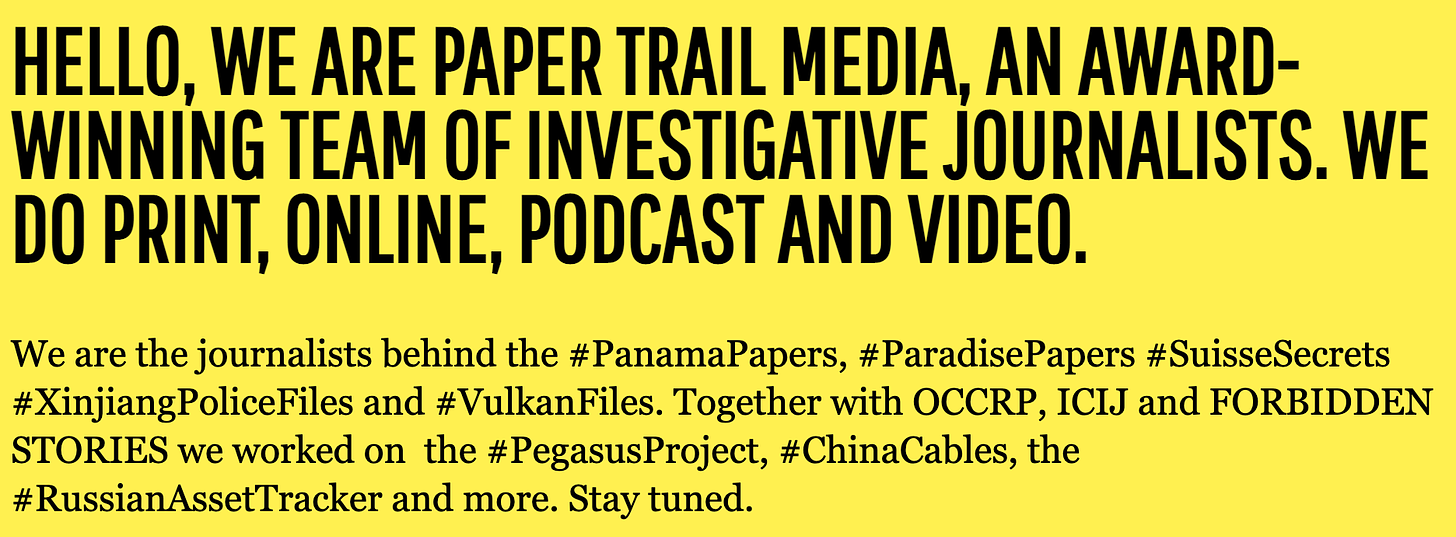
Paper Trail Media works on some of these projects with partner organizations, with four prominently identified: the Organized Crime and Corruption Reporting Project (OCCRP), the International Consortium of Investigative Journalists (ICIJ), Forbidden Stories and the Anti-Corruption Data Collective (ACDC).
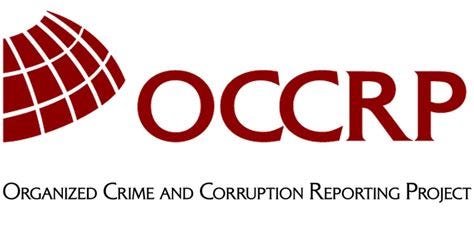
OCCRP is a project of the U.S.-based Journalism Development Network, and its primary funding sources are - get ready - the United States government, through the National Endowment for Democracy (NED), United States Agency for International Development (USAID) and the United States Department of State. Other donors from 2012 to the present day include George Soros' Open Society Foundations, Rockefeller Brothers Fund, Ford Foundation, Skoll Foundation, Pierre Omidyar’s Luminate, and Google (through the Google News Initiative and their think tank, Jigsaw).
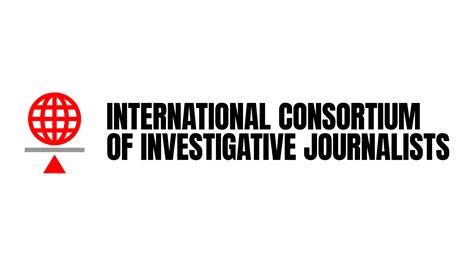
Why, look at that! The International Consortium of Investigative Journalists (ICIJ) is also funded by the National Endowment for Democracy, Open Society Foundations and Ford Foundation. You've also got the Hollywood Foreign Press Association footing the bill.

Forbidden Stories shares many of these same funding sources, including the National Endowment for Democracy, Open Society Foundations, and the Skoll Foundation. Others include the United Nations Educational, Scientific and Cultural Organization (UNESCO) and the Pulitzer Center, funded by the Bill & Melinda Gates Foundation, Carnegie Corporation of New York, Conrad N. Hilton Foundation, Planned Parenthood, Nuclear Threat Initiative, Rockefeller Foundation, and the United Nations Foundation.

Finally, we have the Anti-Corruption Data Collective (ACDC), which is funded by Omidyar’s Luminate and Soros’ Open Society Foundations.
This is the crowd that Paper Trail Media runs with. While some of these investigations are surely done in earnest, and the resulting revelations have brought international attention to real human rights crises (such as the case with the oppression of the Uyghur Muslims in China), it is vital not to lose sight of who benefits from the selective publication of these exposés.
George Soros is a major player on the international geopolitical stage, and his funding of all four of Paper Trail Media’s closest collaborators suggests his own geopolitical goals are advanced by this investment. It’s not just Mr. Soros, of course. By now, the foundations bearing the names Rockefeller, Ford and Skoll should all be immediately recognizable as powerful influences on whichever story is being sold.
But let’s give those guys the benefit of the doubt for a second, and face the biggest elephant in the room: the fact that the United States government itself is engaged with these groups in an apparently significant and long-term relationship.
Mandiant

In good scientific spirit, the article doesn’t simply say “trust us, we wouldn’t lie to you!” Instead, the authors tapped a cybersecurity firm to review the so-called “leak” and provide their input. The article cites the comments of John Hultquist and Gabby Roncone, both employees at Mandiant.
Mandiant is a subsidiary of Google, having been acquired by the internet giant and fully integrated into Google Cloud in March 2022. Its long list(s) of partners includes:
- Allianz
- Amazon Web Services
- AT&T
- Bell
- Cloudflare
- CrowdStrike
- IBM
- Microsoft
- Telus
…and many others. With that in mind, are we really supposed to find this company credible on this topic? Google, keep in mind, is perfectly happy in their position as the world’s gatekeeper of cyber infrastructure.
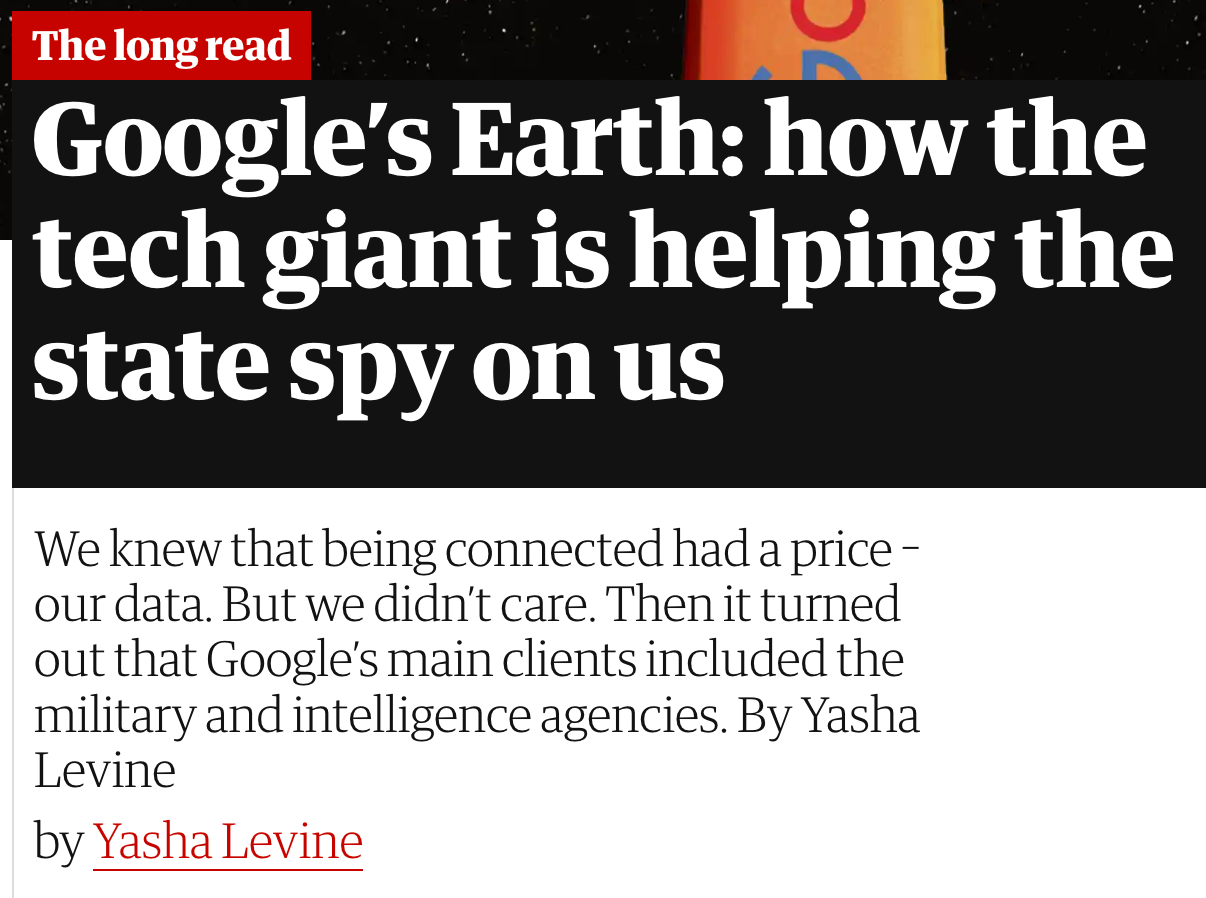
The idea that “Google is spying on us” is ubiquitous, and we treat it as a fact of life. Furthermore, the company has been all too happy working with government, military and intelligence agencies to control the flow of information and target civilians when so desired.
Rounding the Earth is an educational platform, and Mathew told me when I started this weekly news roundup that each show should teach one key educational tool. With this brief overview, we attempted to evaluate the credibility of the source of this story, in particular as it relates to the topic at hand. Given that — in true “Insert-Noun-Here Files” fashion — the underlying “leaked” documents were not provided in any meaningful form at all, we’re required to rely on the source itself.
For me, I can’t help but see the activities and tools skimmed over in the article as being much more than a mirror image of exactly the same tools and activities used by our own governments and domestic corporations, on us. This, my friends, is confession through projection. Whether it’s Russia or the United States, China or Israel, Uganda or Myanmar, intrusion into privacy and the mass manipulation of public flows of information is always the same degree of problematic. I ask you, the reader/listener: are you happy with this as the status quo?